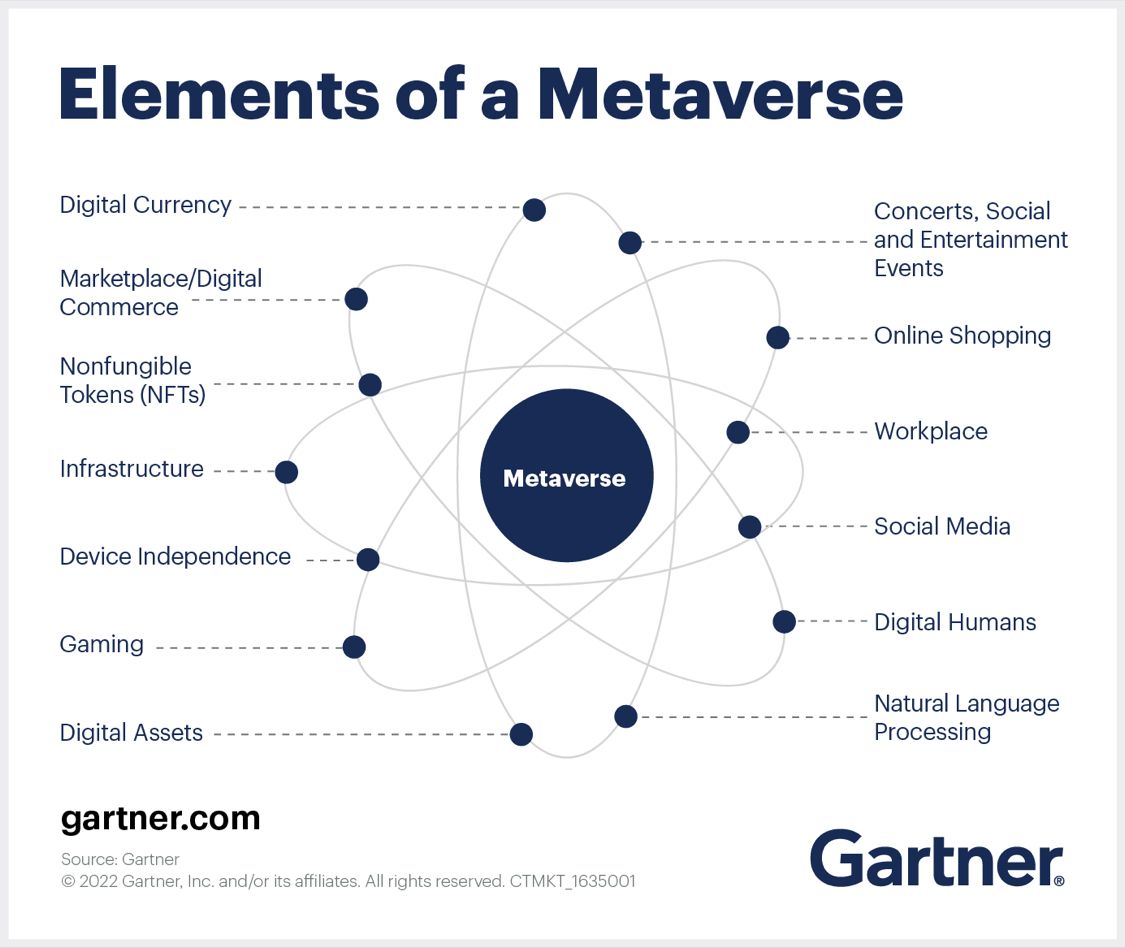In short:
The Metaverse is a collective virtual open space, created by the convergence of virtually enhanced physical and digital reality. It is physically persistent and provides enhanced immersive experiences.
Activities that take place in isolated environments (buying digital land and constructing virtual homes, participating in a virtual social experience, etc.) will eventually take place in the Metaverse.
The adoption of Metaverse technologies is still at an early stage, so business leaders should limit their investments there.

What is a Metaverse?
Gartner expects that by 2026, 25% of people will spend at least one hour a day in the Metaverse for work, shopping, education, social media and/or entertainment. But what exactly is a Metaverse?
It is a collective virtual space, created by the convergence of virtually enhanced physical and digital reality. In other words, it is device-independent and is not owned by a single vendor. It is an independent virtual economy, enabled by digital currencies and nonfungible tokens (NFTs).
A Metaverse represents a combinatorial innovation, as it requires multiple technologies and trends to function. Contributing tech capabilities include augmented reality (AR), flexible work styles, head-mounted displays (HMDs), an AR cloud, the Internet of Things (IoT), 5G, artificial intelligence (AI) and spatial technologies.
To understand the concepts of a Metaverse, think of it as the next version of the Internet, which started as individual bulletin boards and independent online destinations. Eventually these destinations became sites on a virtual shared space — similar to how a Metaverse will develop.
Why is there hype around Metaverse?
There is a lot of excitement around Metaverse, much of it driven by technology companies preemptively claiming to be Metaverse companies, or creating Metaverses to enhance or augment the digital and physical realities of people. Moreover, activities that currently take place in siloed environments will eventually take place in a single Metaverse, such as:
Purchasing outfits and accessories for online avatars
Buying digital land and constructing virtual homes
Participating in a virtual social experience
Shopping in virtual malls via immersive commerce
Using virtual classrooms to experience immersive learning
Buying digital art, collectibles and assets (NFTs)
Interacting with digital humans for onboarding employees, customer service, sales and other business interactions
What are the business opportunities of a Metaverse?
Today there are many individual use cases and products, all creating their own versions of a Metaverse. Opportunities across multiple industries include:
Higher education, medical, military and other types of trades can deliver a more immersive learning experience. They don’t need to create their own infrastructure, as the Metaverse will provide the framework.
Virtual events, having gained popularity over the last two years, can now present more integrated offerings.
Retail can extend its reach to an immersive shopping experience that allows for more complex products.
Enterprises can achieve better engagement,
collaboration and connection with their employees
through virtually augmented workspaces.
Social media can move to the Metaverse, where users can interact through three-dimensional avatars.
The adoption of Metaverse technologies is still nascent and fragmented, and we recommending refraining from heavy investments in a specific Metaverse. It is still too early to determine which investments will be viable in the long term, and the priority should be to learn, explore and prepare for a Metaverse without going overboard with implementation, based on a few use cases.
This content was taken from a published article by Ashutosh Gupta from Gartner.
